giovedì 6 novembre 2008
The Legacy
As often as from thee I go,
Though it be but an hour ago
—And lovers' hours be full eternity—
I can remember yet, that I
Something did say, and something did bestow ;
Though I be dead, which sent me, I might be
Mine own executor, and legacy.
I heard me say, "Tell her anon,
That myself," that is you, not I,
" Did kill me," and when I felt me die,
I bid me send my heart, when I was gone ;
But I alas ! could there find none ;
When I had ripp'd, and search'd where hearts should lie,
It kill'd me again, that I who still was true
In life, in my last will should cozen you.
Yet I found something like a heart,
But colours it, and corners had ;
It was not good, it was not bad,
It was entire to none, and few had part ;
As good as could be made by art
It seem'd, and therefore for our loss be sad.
I meant to send that heart instead of mine,
But O ! no man could hold it, for 'twas thine.
There are three stanzas in this poem composed of eight lines each. Here Donne uses dazzling wordplay to describe a love affair that he had with a woman that left him. In the first stanza Donne is saying that this is not the first time that a love affair has gone wrong and that he feels bad about it (1-3). Then he tells her that he is not her victim and that he is not feeling bad because of her but only because he chose so (meaning that he is his own executor and cause of legacy 7-8). At the end of the second stanza Donne talks about himself looking for his wounded heart (6-7 ) but can‘t find one. In the third stanza Donne finds something like the heart he is looking for (1), however even if it is similar to a heart he describes it full of colors and corners (2). Donne then says that he would have preferred losing this other heart instead of his own (7). I think that this heart that he is referring to is his judgment and is the cause for this legacy of suffering.
http://books.google.it/books?id=QxBx1Bf1eogC&pg=PA85&lpg=PA85&dq=The+legacy+john+donne+explanation&source=bl&ots=MuU3a15FDa&sig=ZvGHN3uspeFiB_JJDhHOe6F3GRo&hl=it&sa=X&oi=book_result&resnum=4&ct=result
Love's Usury
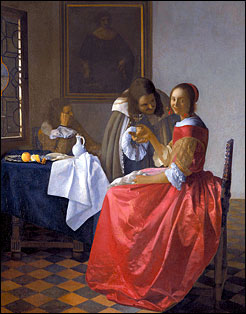
For every hour that thou wilt spare me now,
I will allow,
Usurious god of love, twenty to thee,
When with my brown my gray hairs equal be.
Till then, Love, let my body range, and let
Me travel, sojourn, snatch, plot, have, forget,
Resume my last year's relict ; think that yet
We'd never met.
Let me think any rival's letter mine,
And at next nine
Keep midnight's promise ; mistake by the way
The maid, and tell the lady of that delay ;
Only let me love none ; no, not the sport
From country grass to confitures of court,
Or city's quelque-choses ; let not report
My mind transport.
This bargain's good ; if when I'm old, I be
Inflamed by thee,
If thine own honour, or my shame and pain,
Thou covet most, at that age thou shalt gain.
Do thy will then ; then subject and degree
And fruit of love, Love, I submit to thee.
Spare me till then ; I'll bear it, though she be
One that love me.
Usury is the practice of lending money in change for a huge amount of interest. In the first stanza of this poem Donne addresses him self to the god of Love telling him that he will allow every hour of happiness that will be spared to him (1-2). In the third line of the first stanza Donne then is suspicious about the usury behind the hours of happiness that the god promises him. In line three Donne calls him ‘usurious god of Love’ because for every hour of happiness that he will grant, he will want 20 hours in change. Donne adds in line 4 that if he where to make a deal with the god of Love he would have to pay him until his hair would turn grey. In line five Donne does not care about the consequences and says that until the day that he will have to pay his usury let love take over his body. In the second stanza Donne seams to be caught in a fury of passion and starts loving all sorts of woman. In the third stanza Donne says that the bargain with the Love god is good if it will last until he is old (1-2). Donne then decides that if he will be able to feel the ardor of love until he will be old he chooses to submit to Love as long as there will be some woman to love him.
http://www.dbu.edu/naugle/pdf/donne_philosophy_love.pdf
The Undertaking
Than all the Worthies did ;
And yet a braver thence doth spring,
Which is, to keep that hid.
It were but madness now to impart
The skill of specular stone,
When he, which can have learn'd the art
To cut it, can find none.
So, if I now should utter this,
Others—because no more
Such stuff to work upon, there is—
Would love but as before.
But he who loveliness within
Hath found, all outward loathes,
For he who color loves, and skin,
Loves but their oldest clothes.
If, as I have, you also do
Virtue in woman see,
And dare love that, and say so too,
And forget the He and She ;
And if this love, though placèd so,
From profane men you hide,
Which will no faith on this bestow,
Or, if they do, deride ;
Then you have done a braver thing
Than all the Worthies did ;
And a braver thence will spring,
Which is, to keep that hid.
The first three stanzas are very similar to the ones found in all of Donne’s poetry. In the first stanza (1-4) the speaker uses a boasting tone to modify his insistent enthusiasm with a great deal of reserve, in this way creating a paradox. The speaker then goes on talking about his love and compares love with stone (6), and concludes that describing his love to others would be like teaching them to cut diamond (7) which due to his inexperience with both the art of cutting stone and with love he can not describe them (8). In the fourth stanza however the speaker contradicts his analogy of love being rare, because he says that who ever find love within is able to find true love (13-14). This arises the questions that love is not rare as diamond in this way contradicting stanzas two and three making them look absurd, or gives the idea that stanza four does not represent the true experience of finding love. This contradiction in the speakers argument marks the distance between the speaker and the poet. Donne created this contradiction between himself and the speaker for creating laughter and mocking what the sophisticated people knew, by showing that love is not hard to find as diamond like the sophisticated people think but it is in the hearts of all.
http://www.questia.com/googleScholar.qst;jsessionid=JsQGk2lGVF0GPbb12lTgM9Q14TcprwSKzjBZfT6TV6hDxlBnM1D9!1746175250?docId=95769258
http://faculty.goucher.edu/eng211/john_donne.htm
Lovers' Infiniteness
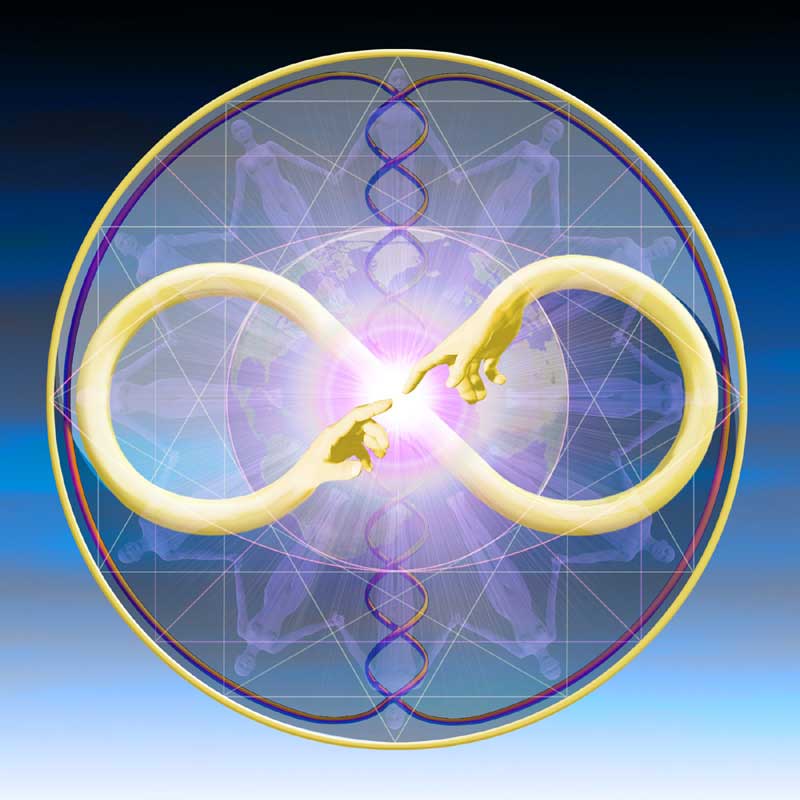
If yet I have not all thy love,
Dear, I shall never have it all ;
I cannot breathe one other sigh, to move,
Nor can intreat one other tear to fall ;
And all my treasure, which should purchase thee,
Sighs, tears, and oaths, and letters I have spent ;
Yet no more can be due to me,
Than at the bargain made was meant.
If then thy gift of love were partial,
That some to me, some should to others fall,
Dear, I shall never have thee all.
Or if then thou gavest me all,
All was but all, which thou hadst then ;
But if in thy heart since there be or shall
New love created be by other men,
Which have their stocks entire, and can in tears,
In sighs, in oaths, and letters, outbid me,
This new love may beget new fears,
For this love was not vow'd by thee.
And yet it was, thy gift being general ;
The ground, thy heart, is mine ; what ever shall
Grow there, dear, I should have it all.
Yet I would not have all yet.
He that hath all can have no more ;
And since my love doth every day admit
New growth, thou shouldst have new rewards in store ;
Thou canst not every day give me thy heart,
If thou canst give it, then thou never gavest it ;
Love's riddles are, that though thy heart depart,
It stays at home, and thou with losing savest it ;
But we will have a way more liberal,
Than changing hearts, to join them ; so we shall
Be one, and one another's all.
In the first stanza Donne says that if he will never have all of the love, then he never will (1-2). He says that until he will not have all of the love in this moment, then henever will. Until then he will not even be able to breath or cry (3-4). Donne says that he will not be able to find this love in objects that he can buy, or in love letters. In lines 7-8 he says that nothing can be added that is not already within this love. In the second stanza Donne talks about the greatness of love saying that when he was born he had all the love he needed (2) and when he grew up, his love was contaminated by the love in the hearts of other men who based it on a materialistic point of view. Donne says that by doing so these men cry and despair when they do not obtain what they want (4-7). Donne says that the cause of sadness is that this materialistic type of love was not wanted by God (8). Donne concludes that when he will find his love in his heart he will no longer need any other type of ‘mundane’ love world already belongs to him (9-10). In the third stanza Donne says that even if one would have the world, he would still have nothing and says that he who has already obtained everything can not obtain anything else (2). At the end Donne contemplates on love’s riddles (7) saying that the mor eone wants the less he haves.
http://books.google.it/books?id=QxBx1Bf1eogC&pg=PA85&lpg=PA85&dq=Lovers'+Infiniteness+john+donne+explanation&source=bl&ots=MuU3a16Cxb&sig=Dqnwt-kqfkQKgCUr0oJeNHyrnbQ&hl=it&sa=X&oi=book_result&resnum=3&ct=result
The Indifferent
Her whom abundance melts, and her whom want betrays ;
Her who loves loneness best, and her who masks and plays ;
Her whom the country form'd, and whom the town ;
Her who believes, and her who tries ;
Her who still weeps with spongy eyes,
And her who is dry cork, and never cries.
I can love her, and her, and you, and you ;
I can love any, so she be not true.
Will no other vice content you ?
Will it not serve your turn to do as did your mothers ?
Or have you all old vices spent, and now would find out others ?
Or doth a fear that men are true torment you ?
O we are not, be not you so ;
Let me—and do you—twenty know ;
Rob me, but bind me not, and let me go.
Must I, who came to travel thorough you,
Grow your fix'd subject, because you are true ?
Venus heard me sigh this song ;
And by love's sweetest part, variety, she swore,
She heard not this till now ; and that it should be so no more.
She went, examined, and return'd ere long,
And said, "Alas ! some two or three
Poor heretics in love there be,
Which think to stablish dangerous constancy.
But I have told them, 'Since you will be true,
You shall be true to them who're false to you.' "
Donne writes about a lover who is indifferent (as the title says) to the woman that he loves, saying that he can love any woman, ‘I can love both fair and brown’ (1). In this poem the lover considers having only one woman as a vice and having more than one woman with different traits as a virtue and as good sense. This message of considering constancy as a sin and promiscuity as a virtue is repeated through out all the stanzas in different ways. Due to Donne’s Christian background this poem was obviously a satire against the people which did not have Christian values, showing their vanity with woman and never being at peace (2nd Stanza). This is one of Donne’s first poems, that he wrote when he was still young due to his simplicity and thoughtlessness, this poem also shows more freedom due to it’s satirical arguments. This poem makes fun of Petrarch’s idea of eternal faithfulness, comparing it with the non moral acts of people in the sphere of influence of love. In Donne’s poem what his speaker says is completely opposite of Petrarch’s doctrine where ones love was aimed especially for one woman. The audience to who the poem was directed was very important because it could change the tone and the meaning completely. If it was directed for a lower class, the people could actually think that Donne considered promiscuity actually as a virtue and not understand his fine meaning.
http://www.123helpme.com/preview.asp?id=60741
Love's Alchemy
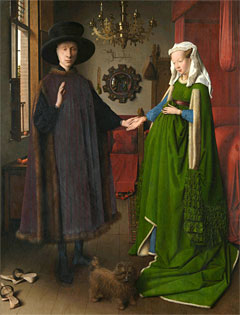
Some that have deeper digg'd love's mine than I,
Say, where his centric happiness doth lie.
I have loved, and got, and told,
But should I love, get, tell, till I were old,
I should not find that hidden mystery.
O ! 'tis imposture all ;
And as no chemic yet th' elixir got,
But glorifies his pregnant pot,
If by the way to him befall
Some odoriferous thing, or medicinal,
So, lovers dream a rich and long delight,
But get a winter-seeming summer's night.
Our ease, our thrift, our honour, and our day,
Shall we for this vain bubble's shadow pay?
Ends love in this, that my man
Can be as happy as I can, if he can
Endure the short scorn of a bridegroom's play?
That loving wretch that swears,
'Tis not the bodies marry, but the minds,
Which he in her angelic finds,
Would swear as justly, that he hears,
In that day's rude hoarse minstrelsy, the spheres.
Hope not for mind in women ; at their best,
Sweetness and wit they are, but mummy, possess'd.
Donne compares the Platonists (as sean in the link below) who’s ultimate purpose is to discover spiritual love, and the alchemists who at his time were trying to convert poor metals into gold. With this comparison Donne is saying that spiritual love does not truly exist and is not likely to occur just as the alchemists are trying to convert poor metals into gold. With this said Donne alludes to the Platonists that by trying to discover spiritual love are just wasting their time. Donne’s language in this poem clearly allows the reader to see the comparison of the alchemists with the Platonists and allow a more materialistic interpretation of everyday love. The first two opening lines of this poem give the idea that the analogy of love between the Platonists and the alchemists has a more sexual implication, this analogy is created by the word ‘digged’ and the image brought by the words ’love’s mine’ (1). With this said Donne explains that some have experienced an even deeper meaning of love than him (1), and have managed to dig into true love (5). This means that few have reached a point beyond the normal love of the senses where they have found it’s true (Platonic) form. According to this poem this would mean that even alchemists could find gold, however due to the tone Donne actually uses his words to ridicule such attempts in both cases. Once again Donne has given an other prove of his dazzling word play.
http://www.123helpme.com/preview.asp?id=75292
The Dream

Dear love, for nothing less than thee
Would I have broke this happy dream ;
It was a theme
For reason, much too strong for fantasy.
Therefore thou waked'st me wisely ; yet
My dream thou brokest not, but continued'st it.
Thou art so true that thoughts of thee suffice
To make dreams truths, and fables histories ;
Enter these arms, for since thou thought'st it best,
Not to dream all my dream, let's act the rest.
As lightning, or a taper's light,
Thine eyes, and not thy noise waked me ;
Yet I thought thee
—For thou lovest truth—an angel, at first sight ;
But when I saw thou saw'st my heart,
And knew'st my thoughts beyond an angel's art,
When thou knew'st what I dreamt, when thou knew'st when
Excess of joy would wake me, and camest then,
I must confess, it could not choose but be
Profane, to think thee any thing but thee.
Coming and staying show'd thee, thee,
But rising makes me doubt, that now
Thou art not thou.
That love is weak where fear's as strong as he ;
'Tis not all spirit, pure and brave,
If mixture it of fear, shame, honour have ;
Perchance as torches, which must ready be,
Men light and put out, so thou deal'st with me ;
Thou camest to kindle, go'st to come ; then I
Will dream that hope again, but else would die.
http://sethchaos.blogspot.com/2006/06/examination-of-john-donnes-dream.html
Another of the Same

'TIS true, 'tis day ; what though it be?
O, wilt thou therefore rise from me?
Why should we rise because 'tis light?
Did we lie down because 'twas night?
Love, which in spite of darkness brought us hither,
Should in despite of light keep us together.
Light hath no tongue, but is all eye ;
If it could speak as well as spy,
This were the worst that it could say,
That being well I fain would stay,
And that I loved my heart and honour so
That I would not from him, that had them, go.
Must business thee from hence remove?
O ! that's the worst disease of love,
The poor, the foul, the false, love can
Admit, but not the busied man.
He which hath business, and makes love, doth do
Such wrong, as when a married man doth woo.
The poem is constructed of three stanzas; each stanza contains six lines. The first stanza is written in the form of a dramatic monologue of four questions which ask if it is true that the speakers lover is going to leave because day has come. The speaker considers the importance of time and the on the continuation of love even as day rolls into night and night rolls into day. The second stanza personifies light and shows how it can affect the speaker's emotions towards his or her lover. The narrator is also convinced that if light could see things that would do little sense at first, they would suddenly become clear. In the third stanza the daily activities which have to do with light are described such as business and work and how they affect in a negative way the speaker’s attitude. In this poem there is used a simple diction which contains vocabulary used in everyday experiences. In the first stanza the speaker says: "Tis true, 'tis day; What though it be? O Wilt thou therefore rise from me?" This shows the speaker’s surprise after knowing that his lover will leave because day has arrived. The use of ‘should’ in ‘Why should we rise…’ (3) and ‘should’ in ‘despite of light’ (6) marks the speakers need to convince himself through rational thought that he and his beloved together with their love should remain strong regardless of the passing of time and the elements of ‘day’ and ‘night’.
http://www.associatedcontent.com/article/224545/a_literary_analysis_of_john_donnes.html?cat=38
http://www.harrisandcogallery.ca/Randy/Break%20of%20Dawn.JPG
Air and Angles
Before I knew thy face or name ;
So in a voice, so in a shapeless flame
Angels affect us oft, and worshipp'd be.
Still when, to where thou wert, I came,
Some lovely glorious nothing did I see.
But since my soul, whose child love is,
Takes limbs of flesh, and else could nothing do,
More subtle than the parent is
Love must not be, but take a body too ;
And therefore what thou wert, and who,
I bid Love ask, and now
That it assume thy body, I allow,
And fix itself in thy lip, eye, and brow.
Whilst thus to ballast love I thought,
And so more steadily to have gone,
With wares which would sink admiration,
I saw I had love's pinnace overfraught ;
Thy every hair for love to work upon
Is much too much ; some fitter must be sought ;
For, nor in nothing, nor in things
Extreme, and scattering bright, can love inhere ;
Then as an angel face and wings
Of air, not pure as it, yet pure doth wear,
So thy love may be my love's sphere ;
Just such disparity
As is 'twixt air's and angels' purity,
'Twixt women's love, and men's, will ever be.
There are several themes present in the poem "Air and Angels" by John Donne and each carries a particular meaning. Donne’s poem focuses in particularly on the medieval believes regarding angles as the messengers of God, which appear in a human form with wings. An old medieval believe said that angles under some circumstances would take the form of air, explaining the title chose by the poet regarding angles. The major theme in this poem is ‘love’. In this poem Donne’s theory regarding love is that love can not exist in a vacuum (because it has nothing to place it’s roots on) and in things (because they are two dense for giving the fertile terrain to true love), so he states that love can only exist in-between these two aspects of reality. The idea of love in this poem takes a shapeless and physical form which is Donne's idea of angles. Two clear examples of the form of love are shown in the fist stanza. In the first stanza of the poem the poet remembers the love for her lady before that he knew her face or her name(2), the effect of her upon him is compared to the singing of angles: ‘So in a voice, so…’ (3), in this line the poet is asking ‘love’ to possess the woman. In line 3 John Donne clearly illustrates that ‘love’ is in fact air and angels: ‘in a shapeless flame’ proving that air and angles are pure love.
http://www.megaessays.com/viewpaper/46723.html
http://www.articlemyriad.com/45.htm
The Triple Fool
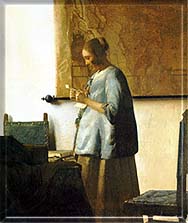
I am two fools, I know,
For loving, and for saying so
In whining poetry ;
But where's that wise man, that would not be I,
If she would not deny ?
Then as th' earth's inward narrow crooked lanes
Do purge sea water's fretful salt away,
I thought, if I could draw my pains
Through rhyme's vexation, I should them allay.
Grief brought to numbers cannot be so fierce,
For he tames it, that fetters it in verse.
But when I have done so,
Some man, his art and voice to show,
Doth set and sing my pain ;
And, by delighting many, frees again
Grief, which verse did restrain.
To love and grief tribute of verse belongs,
But not of such as pleases when 'tis read.
Both are increasèd by such songs,
For both their triumphs so are published,
And I, which was two fools, do so grow three.
Who are a little wise, the best fools be.
This poem is all about Donne who writes about unrequited love (non reciprocal). In the first stanza of the poem Donne personifies the letter on which he is writing on, who says that it is two fools (referring to Donne and to the woman who did not accept him) and says that he is a fool for writing his love problems down (1-3). Donne then tries to justify himself saying that anyone would have done like him if the woman that he loved denied him (4-5). In lines 6-9 Donne compares his poetry to an aspect of nature; in the same way that the earth removes salt from water the same way his poetry removes tears from his eyes. In the second stanza Donne complains about a man who transformed his poem of pain into a song (1-3) (no copy writes in the renaissance). Donne is frustrated about the fact that someone is singing about his pain to the world, because by delighting many he is actually giving him even more pain (5-6) (there is some irony in this because the very same verses that Donne wrote to feel better end up making him feel even worst). In the last lines of the poem Donne is saying that he dislikes the idea that other people who listen to his poem consider him as a fool, so he wrote an other poem saying that who judges him as a fool is a fool.
http://www.eliteskills.com/c/6825
The Flea
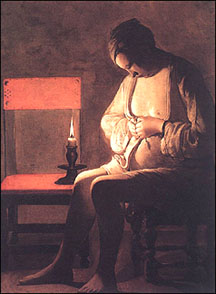
Mark but this flea, and mark in this,
How little that which thou deniest me is ;
It suck'd me first, and now sucks thee,
And in this flea our two bloods mingled be.
Thou know'st that this cannot be said
A sin, nor shame, nor loss of maidenhead ;
Yet this enjoys before it woo,
And pamper'd swells with one blood made of two ;
And this, alas ! is more than we would do.
O stay, three lives in one flea spare,
Where we almost, yea, more than married are.
This flea is you and I, and this
Our marriage bed, and marriage temple is.
Though parents grudge, and you, we're met,
And cloister'd in these living walls of jet.
Though use make you apt to kill me,
Let not to that self-murder added be,
And sacrilege, three sins in killing three.
Cruel and sudden, hast thou since
Purpled thy nail in blood of innocence?
Wherein could this flea guilty be,
Except in that drop which it suck'd from thee?
Yet thou triumph'st, and say'st that thou
Find'st not thyself nor me the weaker now.
'Tis true ; then learn how false fears be ;
Just so much honour, when thou yield'st to me,
Will waste, as this flea's death took life from thee.
Before the first line of the poem a flea sucked the blood of two people. Between the first and second stanzas one of the two people wants to kill the flee and after the third stanza the flea is killed. According to a traditional Renaissance belief, the blood of lovers mixed during sexual during sexual intercourse. In this poem the past relationship between the two characters was that they were once lovers, she has denied him (2) the chance to marry in this way ‘habitually killing him’ (16). The objective of the failed lover was to convince her that since the flea has ‘mingled’ their blood (4) it is like if they already have gone through a sexual relationship and as the tradition of that time she had to marry him (Stanza 1). In stanza 2 the speaker uses this excuse of the flea to marry her even if she and her parents don’t want to (4-5 2nd stanza). In the 2nd stanza he also tells the woman to not kill the creature because by doing so she would commit ‘three sins in killing three’’ (18) because she would kill her blood, his blood and the blood of the flea. Before stanza 3 the woman kills the flea and proves to the man that his fears on the sins committed by killing the flea where false in this way triumphing on him.
http://www.123helpme.com/view.asp?id=16300
http://lardcave.net/hsc/2eng-donne-flea-comments.html